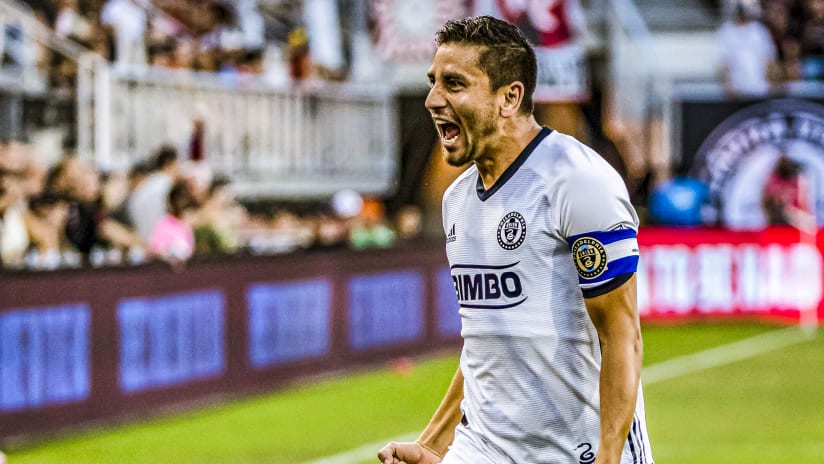Over the past few years, American soccer stars that have proven their bona fides in Europe have joined or re-joined Major League Soccer and become some of the league’s biggest stars. Michael Bradley and Jozy Altidore in Toronto, Clint Dempsey in Seattle, and Sacha Kljestan in New York and Orlando all helped kickstart the trend, and Philadelphia Union bolstered its own midfield with Maurice Edu.
But when injuries brought Edu’s career to an early conclusion, many expressed reservations about the Union’s next foray into the US international market. Alejandro Bedoya had shown he could play across the midfield with Orebro, Helsingborgs, and Nantes. But, not unlike when Philly acquired Edu, fair questions were asked about whether MLS’s complex roster building mechanisms meant spending heavily on a midfielder that didn’t play the final ball or score was a misallocation of resources.
Bedoya wasn’t a game-changer; and Designated Player should be synonymous with game-changer.
With ten goals and 14 assists across three-and-a-half seasons, Bedoya does not fit the traditional definition of the term. So let’s call him what he is: A franchise-changer.
It can be said without denigrating those before him that Bedoya is likely the first Union captain since Danny Califf to fully embody the Philadelphia ethos in how he plays the game of soccer.
Carlos Valdes had the nerve, Brian Carroll put in the work, and Maurice Edu brought confidence. But only Bedoya combines energy, emotion, and brash self-possession.in an unassuming physical form that allows Philly to look at him and see itself.
Since becoming captain, Bedoya has led the Union to the playoffs in two of his three full seasons (and three of the four he’s been a part of the club), becoming the club’s all-time leading postseason goalscorer along the way.
He has also played, in those 3.5 years, at least three distinct roles: The box-to-box runner who defends deep, the attacking player who controls space in front of the midfield, and the No. 8 on the outside of a diamond, scoring more goals each season he’s been in the league.
Often, clubs build themselves around a Designated Player. In contrast, the Union have a Designated Player that rebuilds himself into whatever helps the team win.
And yet, all of these performance-based plaudits obscure the purest, most atomic link between Bedoya and Philadelphia: He feels everything: Each tackle, each slight and implication, every win and every single loss. And then, when asked, he’s honest about those feelings in a way that lets you know they have not changed him. The goals feel great but they don’t make him float; it hurts to hit the mat, but he’ll answer the next bell.
If you’ve never been — it’s no different in training: Honest. Open. At times, critical. Emotional. This is Philadelphia.
Philly lives between praise-hungry New York City and self-loathing Washington, DC. As a result, it accepts underappreciation with a cockiness that seems odd to outsiders.
Brenden Aaronson — too slight — and Mark McKenzie — too small — turn a sly smile when asked how they will succeed despite these supposed limitations. The answer is obvious: They will outwork you; they want it more.
Kacper Przybylko sits and fumes when he, a player whose career almost never happened due to injuries, has scored yet played below his own high standards.
This is a roster Bedoya can lead: One that takes each knockdown as a challenge, and each game as a title bout.
This is a roster that allows Bedoya to be a game-changer.
April 6 vs Dallas: Touch, touch, game-winner.
August 4 vs DC United: An early goal that to energize a squad that had accumulated only eight points in seven matches following The Ilsinho Game.
October 20 vs New York Red Bulls: Down 0-2, a lashed finish that showed every other player how much emotional powder was waiting to be lit in a stadium shaking in anticipation of a first playoff win.
Danny Califf set the standard for Union captains; Bedoya has surpassed it.
And now the Union, as a club, reflect their captain.













